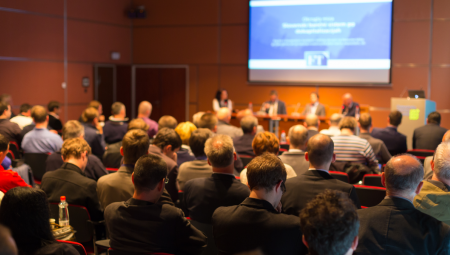 Brazil. Representatives of industry, associations, academies, governments, internationally recognized NGOs, experts in energy efficiency and sustainability, were gathered by Dakin during the third edition of Konwakai (in Japanese "friendly discussion on sustainable development") that took place in the city of Sao Paulo.
Brazil. Representatives of industry, associations, academies, governments, internationally recognized NGOs, experts in energy efficiency and sustainability, were gathered by Dakin during the third edition of Konwakai (in Japanese "friendly discussion on sustainable development") that took place in the city of Sao Paulo.
Over three sessions, 13 speakers addressed topics related to energy efficiency and the refrigerant transition in Latin America.
The event revealed the challenges in addressing the growing demand for energy by cooling space and how to overcome environmental issues through public policy and collaboration with industry and academia.
In addition, he discussed the benefits of energy-efficient technologies such as Inverter and lower global warming potential (GWP) refrigerants through demonstration projects conducted in Brazil and the ability to learn best practices from Japan and other nations. He also dedicated a space to the perspective of building efficiency and certification programs and referred to how markets have been transformed into "servitization" in the HVACR industry.
During the first session, the speakers explained the overview of energy demand and environmental issues in Latin America and presented an overview of Brazil's energy matrix, highlighting the activities of the Brazilian government's program that creates energy efficiency actions in various segments of the economy to save electricity and generate benefits for society. In addition, the Brazilian Labeling Program (PBE) was announced with the aim of providing consumers with useful information to encourage the purchase of energy-saving products, and the challenges and opportunities of air conditioning in Brazil were presented, in terms of energy efficiency and transition to refrigerants with low GWP with the aim of achieving the ratification of the Kigali Amendment by the Brazilian Government.
The second session showed the results of a project carried out in three main cities of Brazil with the support of the Japanese government.
During the same, the energy savings between two MiniSplit technologies were compared, each with a different refrigerant (On-Off + R-410A and Inverter + R-32) obtaining savings of up to 60% with the use of Inverter + R-32.
The experience of Japan was present at the event with Yasushi Tanaka, who showed how in that country the public sectors have encouraged consumer behavior to seek a more efficient air conditioning. "R-32 is, without a doubt, the imperative of the next generation at high ambient temperatures where the refrigerant charge limits efficient cooling. Of course, natural refrigerants should be used as long as it is safe and with a lower life-cycle carbon footprint," said Stephen Andersen, considered one of the founders and leading figures in the success of the Montreal Protocol.
Finally, the last session covered topics related to solutions for sustainable buildings and a certification program such as LEED (Leadership in Energy and Environmental Design) and WELL Building Standard, the leading movement to make buildings healthier.
Source: Electro Industria Chile.














